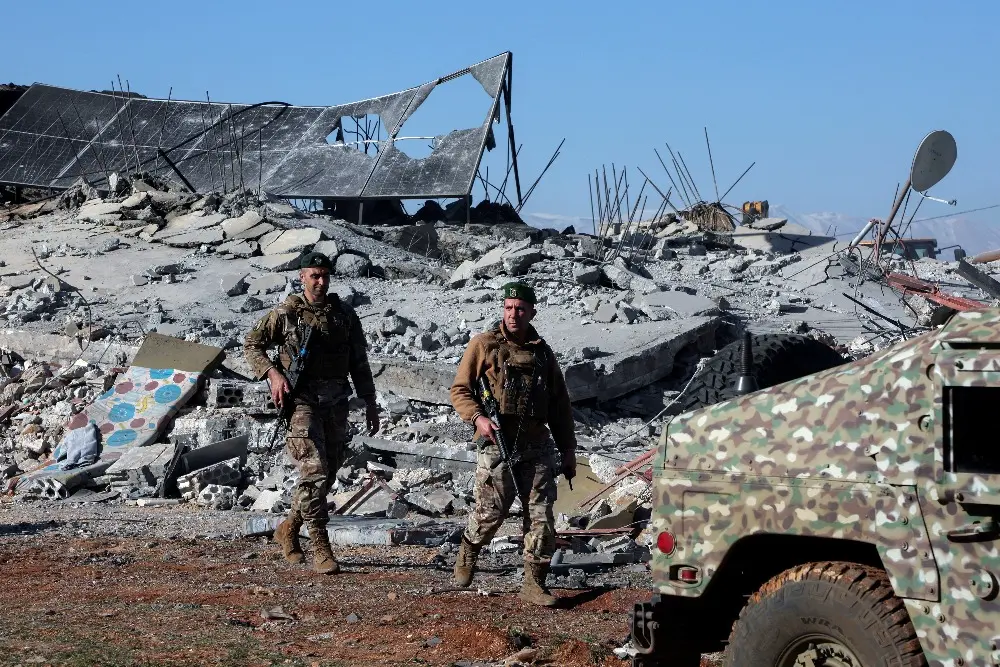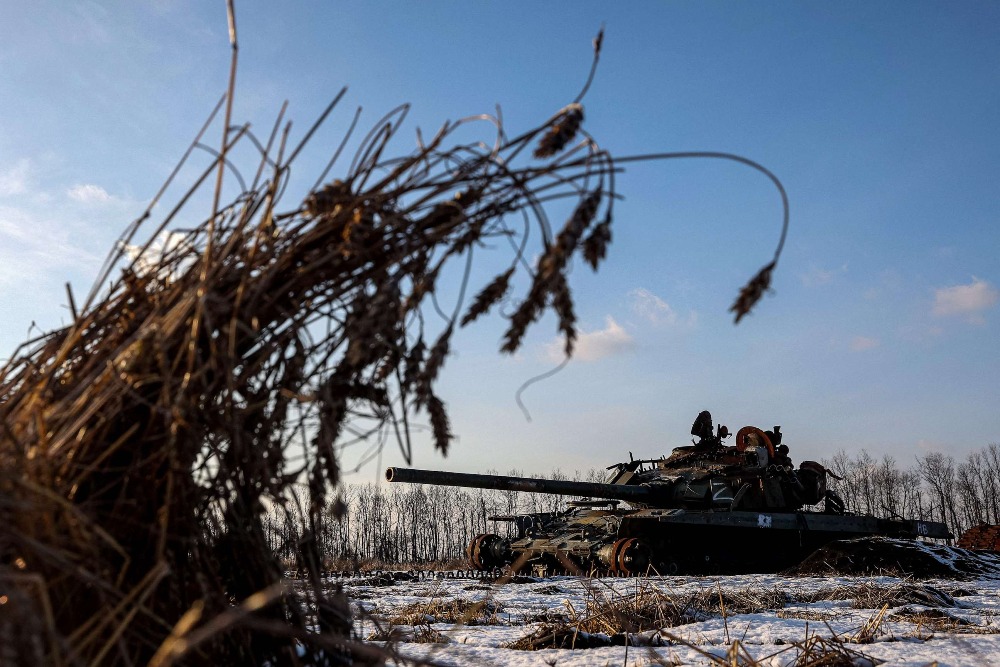
Despite the rapidly escalating tensions along the Israeli-Lebanese frontiers, Hezbollah has not yet decided to fully engage in war with Israel. Hezbollah has been criticized -by many of its supporters- for not using its full capacities in revenging the Israeli attacks on Southern Lebanon and the assassination of ten of the group’s field commanders over the past 7 months. Answering this exact question is not to be only linked to the status of Hezbollah but rather to the current status of Lebanon, and also the status of the whole region.
Hezbollah enjoys a very militarily-strategic location on the northern borders of Israel, an area filled with mountains and valleys, and covered by green forests. In other words, such an environment is considered to be perfect for the kind of “Gorilla-warfare” that Hezbollah masters for decades. In addition, the group has direct access to the Syrian geography -unlike the case of Isolated Gaza- which in its turn guarantees an unstoppable flow of arms and supplies in case of a full-scale war between Lebanon and Israel. Hezbollah is not under a full embargo as in the case of Hamas in Gaza, neither in land nor in sea, thus; the group’s well-trained militia can fight for long terms without facing shortage in food, medical support, arms supply or fuel.
In addition to the previous advantages, Hezbollah enjoys the physical presence of the Iranian Revolutionary Guard (IRG) on its soil – the group’s leaders have repeatedly confirmed this fact over the past years. This means, if a war is to break out, Israel won’t be only battling Hizbollah as a group but also the whole technical and technological capabilities of IRG. This is not to mention the Syrian army and its affiliates, which will most probably provide Hizbollah with all the needed support if escalation hits the ceiling – the 2006 war is a live example of that. Therefore, a full-scale war between Israel and Lebanon would drag the Iranian and Syrian army to the side of Hezbollah, not necessarily as direct participants but at least as formidable, well-equipped and well-experienced supporters of Hezbollah.
Militarily speaking, Hezbollah is far stronger and better equipped than it was in 2006, the year Israel could not win the war with Lebanon and was severely forced to retreat its forces from southern Lebanon after suffering heavy losses in lives and arms. Furthermore, it is highly believed that Hezbollah’s missile arsenal is far more dangerous and numerous in 2024 than ever. Even the group’s leader, Hasan Nasrullah, has repeatedly stated that the group has far more lethal and farther missiles that could hit any area in Israel. Nasrullah does not even hide the origin of these advanced missiles, he mentioned in several occasions, they are developed and transferred by both allies, Iran and Syria.
Despite all the advantageous Hezbollah acquire today, it does not necessary mean it will head into a full-scale war with the Israeli army, this is for reasons which not only has to do with Lebanon itself, but with Syria and Iran as well. Indeed Hezbollah feels the need to further release the pressure away from its ally, Hamas, in the 7-months ongoing war with Israel, Hezbollah also feels the need to avenge the assassinations of its fighters and commanders in Syria and Lebanon, targeted by Israeli airstrikes – throughout the past 10 years. But even-though, the decision to go to war with a well-equipped and advanced army as the Israeli one is never such an easy decision and such war is not a picnic.
Hezbollah witnesses closely the amount of destruction Israel has caused in Gaza, the past few months, satellite images shows that by 1st April, almost 80% of Gaza landscape is destroyed – due to the catastrophic bombing of civilian districts and buildings, including hospitals, charity centers and schools. Israel has publicly threatened that if a war to breakout with Lebanon, the fate of Beirut and other cities would be similar to Gaza’s. Hezbollah seeks revenge from Tel Aviv, at the same time, it’s acting rationally so not to push Lebanon into systematic destruction and chaos. A scenario like that would also put Hezbollah in a fiercer struggle with its local political rivals as they would blame the group for the destruction of Lebanon – in the case of a full-scale war with Israel.
Furthermore, Hezbollah going to war is not a decision to be made solely but rather with the coordination with its closest ally, Syria. Syria has witnessed one of the longest and deadliest civil wars in modern history, the country’s economy is currently “suffocating” under Westerns sanctions and the army is never as ready for war as it was in 2006 – during the infamous Lebanese-Israeli war. It’s very unlikely that a new war with Israel would not drag Syria in, especially with the high-level security and military cooperation between the Syrian army and Hezbollah, this is not to mention the presence of Hezbollah fighters and commanders inside of Syria and the presence of IRC inside of both, Syria and Lebanon. In other words, a full-scale war between Lebanon and Israel would most likely drag the Syrian army in, a well-experienced army that is still in the recovery stage of a previous and long war. Therefore, Hezbollah takes in consideration the national interest and the current status of Syria as well, as an economy, a state and a military.
Moreover, a war with Israel should be also coordinated with Iran, the strongest supporter and ally of Hezbollah. Tehran today is in a rapprochement stage with its Arab allies, despite all the ongoing tensions in the region. Tehran and its Arab neighbors are trying to agree on better terms on many topics, such as Yemen, Syria, Sudan, security in the Gulf region, and most importantly, the Israeli war on Gaza. Tel Aviv’s extreme behavior in battling Hamas without considering the need to protect civilians and basic infrastructure has led to the deaths of more than 33,000 Palestinians in 7 months – half of them are women and children. The Israeli extreme actions and bombings have brought Tehran closer to its Arabic neighbors as they both highly condemn Tel Aviv and consider the war a threat to regional peace and security.
In other words, both, Iran and its Gulf neighbors are seeking de-escalation in the Middle-East rather than escalation, this is exactly why Tehran is not much interested in a full-scale war between Lebanon and Israel at the time being. Besides, such a war would provoke Israel to further strike Iranian targets inside of Syria and might drag the US further on Tel Aviv’s side. Tehran currently has the upper hand as Israel is fighting on two fronts, its economy is in bad shape and its global image is widely damaged due to the horrible atrocities of human rights in Gaza. Thus, Iran is seemingly winning the “Cold War” with Israel, without the need to escalate the situation on the Lebanese frontier.
To conclude, Hezbollah is currently not in a position to go to a full-scale war with Israel, even if it’s strong enough and ready enough to defeat the Israeli army in such a war. However, incidents are rapidly occurring in the Middle-East and regional circumstances might be re-transforming in few months, thus, a war between both the countries is not impossible, but rather not probable to happen in the current circumstances.














Comments